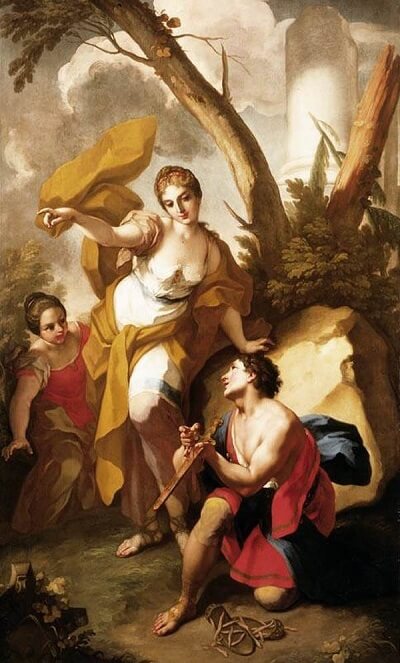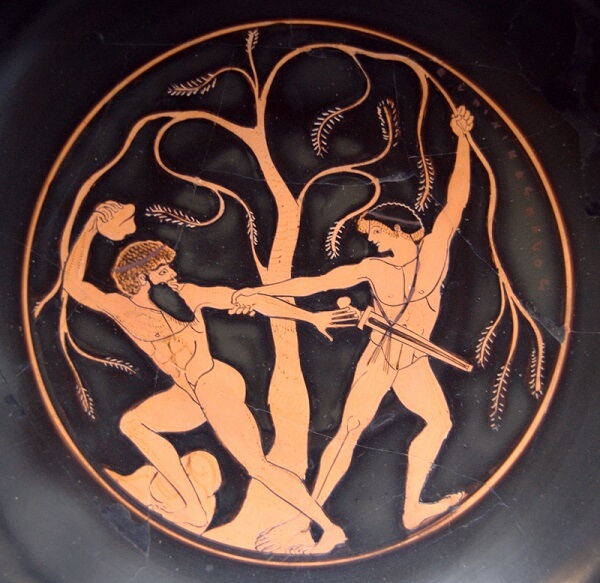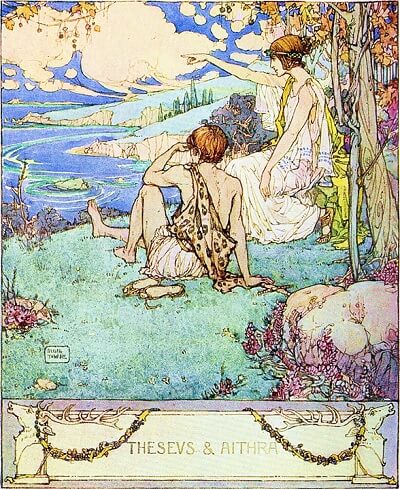Activity 1: Recite the Book Information
- Recite the name of the author, the title of the book, and the title of the chapter.
Activity 2: Narrate the Story
- Narrate the events aloud in your own words.
Activity 3: Study the Story Picture(s)
- Study the story picture(s) and verbally describe the relation to the story.
Activity 4: Map the Story
- In the story, the Cretans and the Athenians are foes.
- Find Crete on the map of Greece.
- What type of landform is Crete?
Activity 5: Playact Theseus Lifting the Rock
- Pretend you are Theseus as a young boy.
- You try to lift the rock, but cannot.
- Pretend now you are Theseus as a man.
- Lift the rock and find the sandals and sword underneath.
- Hoist the sword and strap on the sandals.
Activity 6: Complete Written Narration

- Click the crayon above, and complete page 231 of 'Fourth Grade Prose: Written Narration, Dictation, and Review Questions.'
Activity 7: Complete Copywork and Dictation

- Click the crayon above, and complete pages 231-232 of 'Fourth Grade Prose: Written Narration, Dictation, and Review Questions.'
Activity 8: Match the Greek and Roman Names

- Click the crayon above, and complete page 232 of 'Fourth Grade Prose: Written Narration, Dictation, and Review Questions.'
Activity 9: Answer Written Review Questions

- Click the crayon above, and complete page 233 of 'Fourth Grade Prose: Written Narration, Dictation, and Review Questions.'
 Old Greek Stories
Greek Stories
Old Greek Stories
Greek Stories



 Old Greek Stories
Greek Stories
Old Greek Stories
Greek Stories






